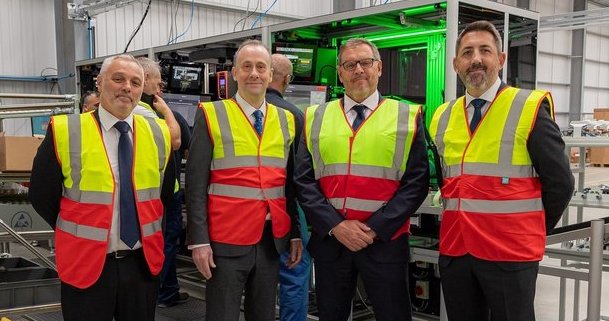- Spinner’s Yard around Mabgate, developed by Rise Homes
- Leonardo and Thoresby buildings on Gt George Street, developed by McLaren on behalf of Arrow Leonardo
- The redevelopment of Leeds Technology Campus on Cookridge Street, developed by Metropolitan & District Securities
- Leeds Conservatoire on Quarry Hill
Leeds demonstrates future of low carbon heating through PIPES network extension
West Yorkshire structural engineering firm snapped up
Assent makes building control acquisition
Hull City Council sets up funding pot for young entrepreneurs
Yorkshire renewables business continues acquisitive expansion
Harrogate confectionery business makes fresh acquisition
New Defra fund offers grants to support SME capital projects
- New and existing rural businesses to develop new products and facilities of wider benefit to the local economy, including farm businesses looking to diversify.
- New and improved community infrastructure to provide essential community services and assets for local people and businesses to benefit the local economy.
- Towns, villages and hamlets with populations below 10,000 and the wider countryside.
- Market or ‘hub towns’ with populations of up to 30,000 that serve their surrounding rural areas as centres of employment and in providing services.
Ideal launches heat pump production line in Hull as part of £60m investment
Growth Hub aims to nurture dozens of start up companies in Yorkshire
Heron Foods turns to Sewell Facilities Management for Yorkshire and Lincolnshire stores
Arco turns to Ripon-based thread supplier for environmentally-friendly switch
Future dairy farming entrepreneurs invited to apply for bursaries
CBI predicts further rises in interest rates
Council considers licensing scheme to tackle rogue landlords
Work due to start at end of August on Shipley Business Enterprise Hub
LEP Network chair responds to Government decision to end LEP funding
In response to today’s announcement that the government will no longer fund LEPs after March 2024, LEP Network Chair Mark Bretton said it was essential, that effective devolution could be achieved only whilst business retains a respected and impactful voice which is a key element of democratic accountability.
“I am hugely grateful to the LEP Network Board, CEOs group and our highly talented Executive team for their guidance, resilience and professionalism in their support to me personally over this period. Please rest assured that the LEP Network remains highly committed to support you.






















